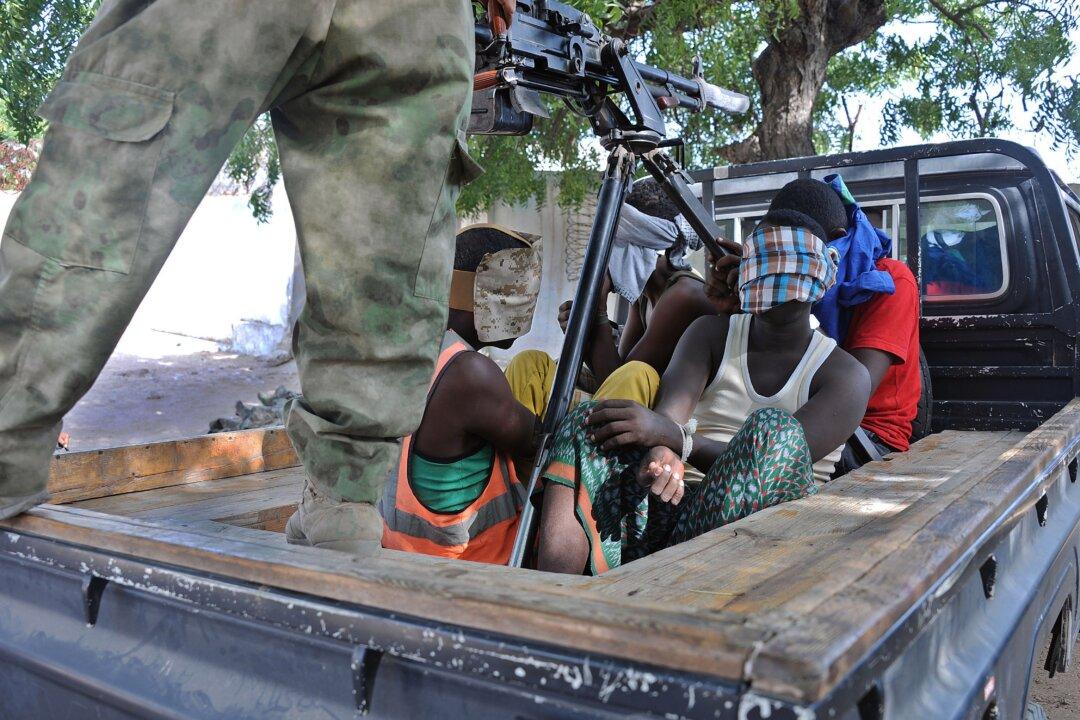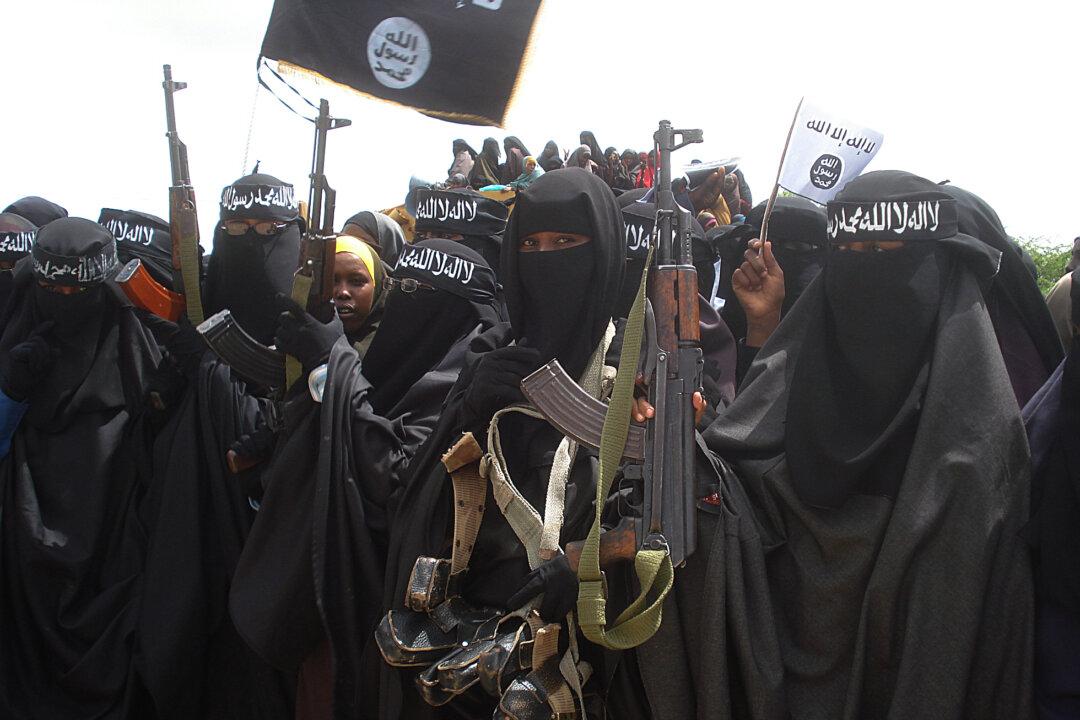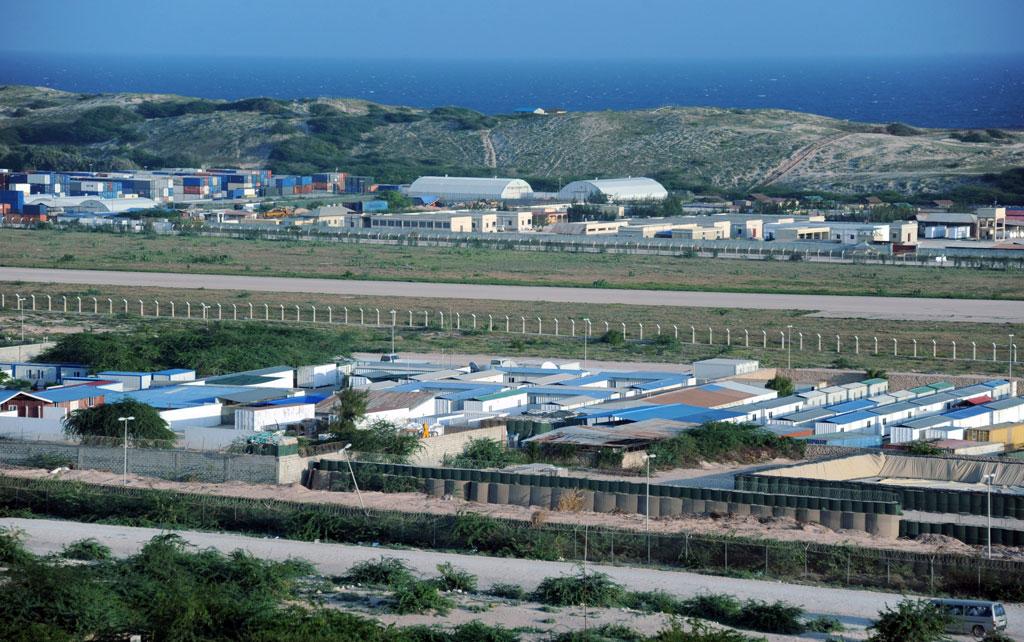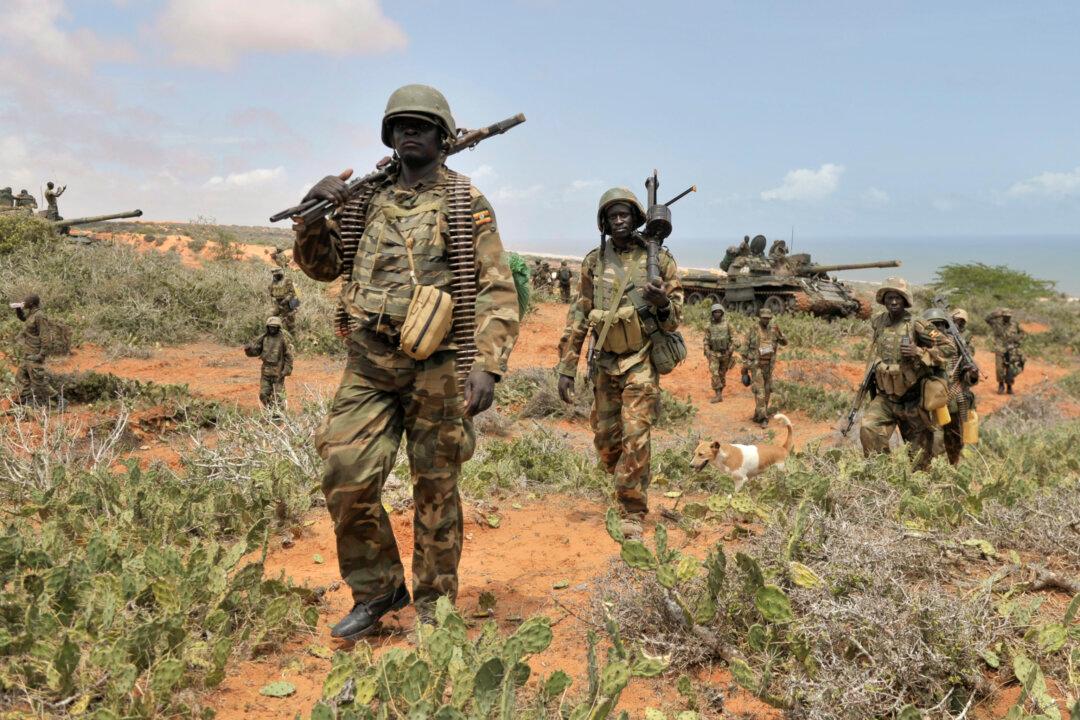NAIROBI, Kenya—A U.S. airstrike killed the intelligence chief of Somali terror group al-Shabab, Somalia’s intelligence service said Tuesday.
Abdishakur is the name of the slain leader, who is also known as Tahlil, a statement from the spy agency said, adding that the operation also killed two other al-Shabab militants.
The Pentagon said the airstrike took place Monday in the vicinity of Saakow, Somalia. The statement from the pentagon provided no details, beyond saying it did not believe the attack caused any civilian or bystander casualties.
A senior defense official said the strike did not target Ahmad Umar, who took over as the top leader of al-Shabab when its previous leader, Ahmed Abdi Godane, was killed in a U.S. airstrike in Somalia on Sept. 1. The official spoke on condition of anonymity because he was not authorized to discuss details of the attack by name
Al-Shabab is an ultra-conservative Islamic militant group that is linked to the al-Qaeda terrorist network and wants to run Somalia by its strict interpretation of Shariah law. Despite militants suffering huge losses in recent years, including the killing of their leader in a U.S. airstrike earlier this year, al-Shabab remains a threat. Al-Shabab leader Ahmed Godane was killed in a U.S. airstrike in September.
African Union troops supporting Somalia’s weak army have pushed al-Shabab from major strongholds, including the capital, Mogadishu, in 2011. However, al-Shabab fighters still carry out terror attacks in Somalia’s capital and in neighboring countries that have contributed troops to the African Union Mission to Somalia.
On Christmas day al-Shabab gunmen attacked the main African Union base in Mogadishu. The A.U. base hosts U.N. offices and embassies.
Al-Shabab leader Zakariya Ismail Hersi, who had a $3 million bounty on his head, surrendered to Somali authorities three days ago.
From The Associated Press. AP National Security Writer Robert Burns contributed to this report from Washington.



